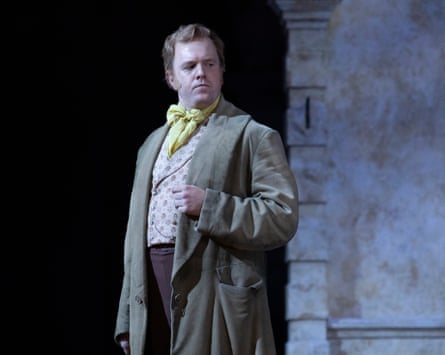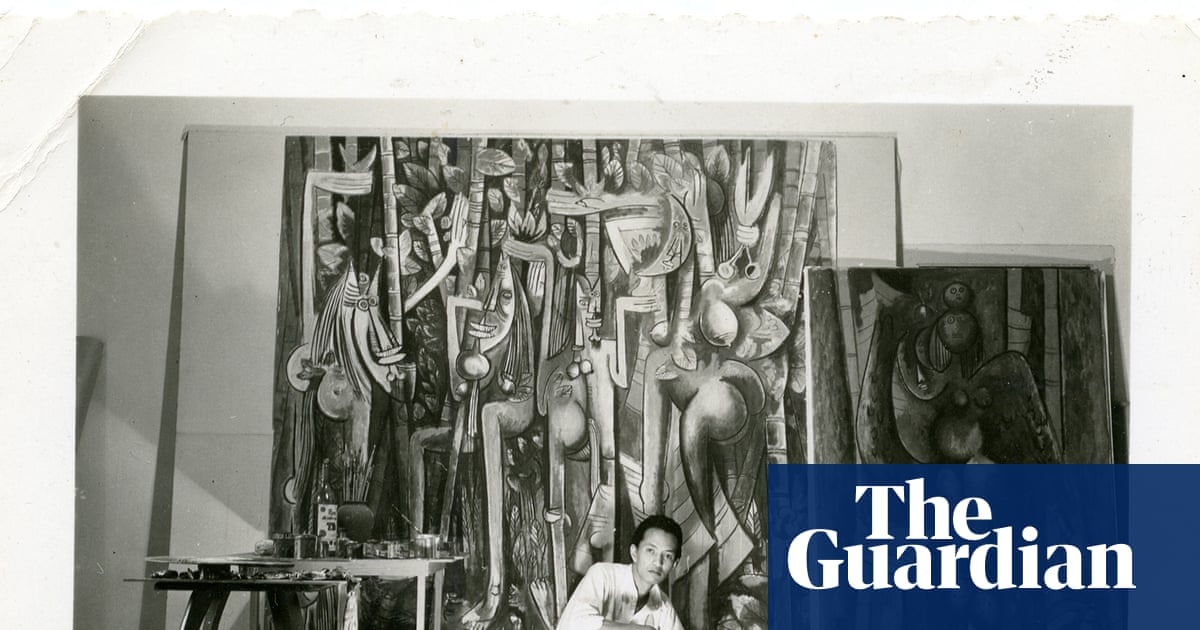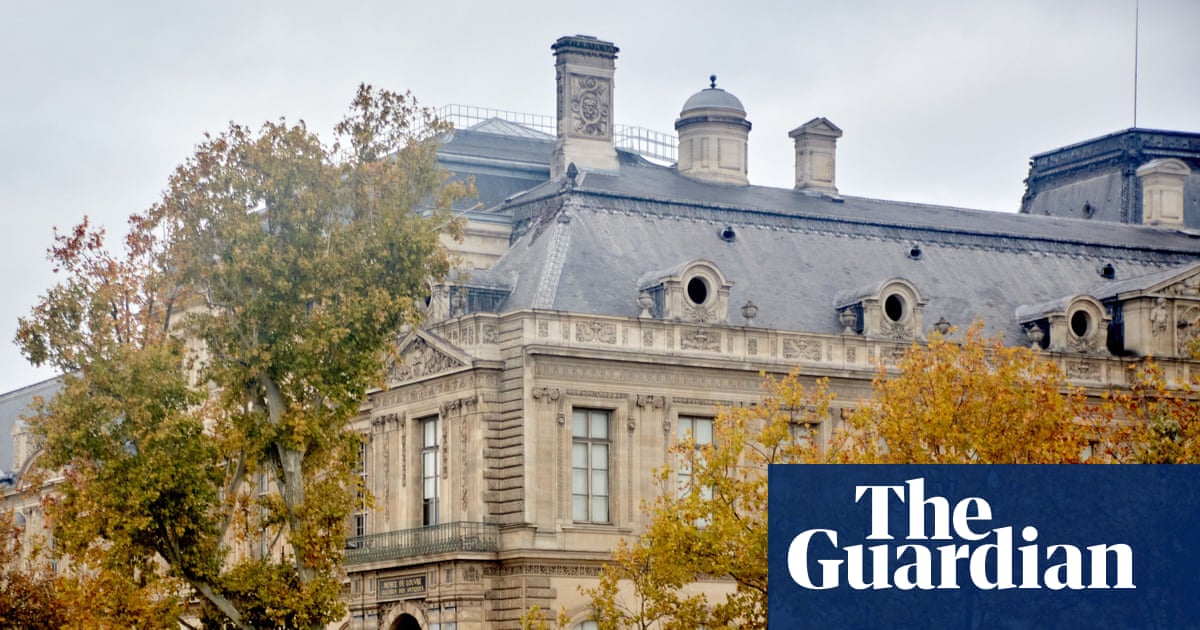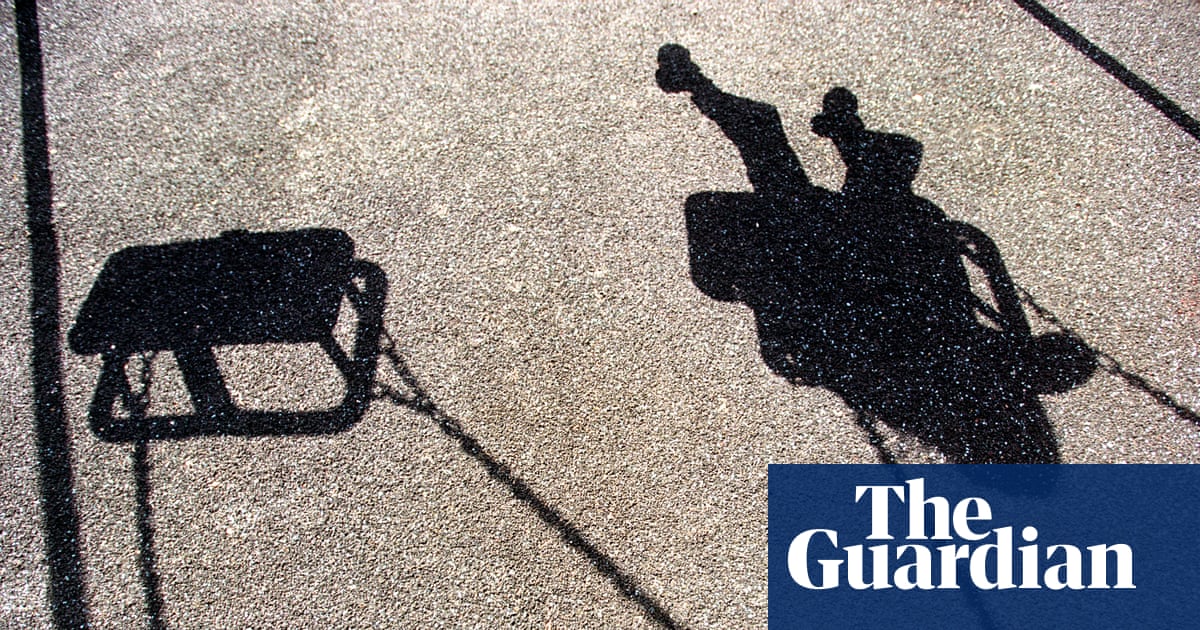A murderess who goes mad or a madwoman who commits murder? Donizetti’s bel canto bloodbath has lost none of its power to intrigue as well as entertain in the 190 years since its Naples premiere. In Cecilia Stinton’s thoughtful new staging the heroine is a charmer, a little wacky perhaps, prone to the odd hallucination maybe, but in different circumstances you imagine she’d be fun to be around. It’s also clear from the sexual violence played out behind the backs of her testosterone-fuelled lover and brother as they sing a rollicking duet on the forestage that when this Lucia kills it will be in self-defence.
Opera Holland Park is ideally placed to host a traditional production. Neil Irish’s sets, subtly lit by Tim van ’t Hof, seem to grow out of the Jacobean walls of Holland House. The action is partly set inside a crumbling mansion, here pointedly in need of repair. The rest occurs in and around the lichen-encrusted cemetery where the soil is still fresh on the grave of Lucia’s mother. With the orchestra located in the middle of the action, Stinton uses a potentially tricksy space well, though the busy chorus of parlour maids, gardeners and wedding guests could be more imaginatively blocked at times, and the 19th-century Scottish dad dancing was perhaps a step too far.
Michael Papadopoulos’ way with Donizetti’s tuneful score is another asset. There’s real care and attention in the way he shapes phrases and encourages the City of London Sinfonia to breathe in time with the singers. The 35 players produce a satisfyingly weighty sound, especially in the lively party scenes and the turbulence of the Act III storm. The OHP chorus is similarly rock-solid.

Leading a fine cast is Jennifer France, a bright, flexible soprano whose unforced warmth wins the audience’s sympathy from the outset. Playful, even cheeky at first, her descent into the grave – quite literally – where she plasters her blood-stained wedding dress with earth, is both consistent and credible. Her hushed singing is a delight, her coloratura secure. Only the high F feels a stretch, and then only just.
Her Edgardo is Portuguese tenor José de Eça. His is a thoroughly Italianate sound, rich and ringing, though a couple of softer high notes fell slightly flat. The final death scene is, for once, convincing. Australian baritone Morgan Pearse sings Lucia’s hard-hearted brother Enrico with impressive heft and plenty of ping to the voice.
Among the supporting roles, Blaise Malaba is a genially resonant Raimondo and Joseph Buckmaster a sprightly toned Arturo. A shout out too for stylish mezzo Charlotte Badham who made an indelible mark as Lucia’s companion Alisa. Their touching, delicately sculpted relationship was one of the production’s unexpected pleasures.

 3 months ago
72
3 months ago
72

















































